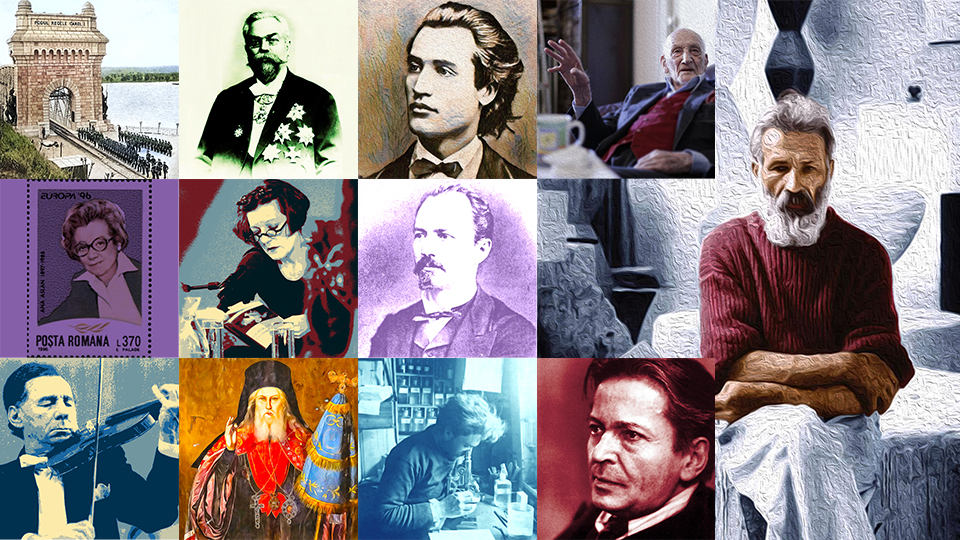The Inventor Iustin Capra
Romanian Iustin Capra, inventor of the flying backpack, died in January 2015.

Steliu Lambru, 15.03.2015, 14:03
In 2013 the Romanian inventor Iustin Capra divided the world of science in two. On the one hand there were the inventors, those who are always in search of solutions, those who would always ask questions. “They are the sort of people who are somehow unhappy, though they ought to be happy since God gave them the opportunity to play,” Capra used to say. On the other hand there were the researchers and scientists whom Capra described as naïve, because they imagine they can reach some ultimate truth through study. “There is no such thing as absolute truth, except for the divine one. Everything is made of relationships, and two truths equal no truth. Man will never reach complete knowledge,” one of Romania’s most original inventors used to say.
Iustin Capra’s outlook on the world and on scientific knowledge seems unconventional and it may even annoy some scientists. And that is because the divine is seldom taken into account when talking about progress and technological achievement. In this respect, too, Iustin Capra was an unusual personality, if we can ever speak about something usual when it comes to inventors.
Born in the central-southern Romanian county of Prahova in 1933, Capra graduated from the Polytechnic School in Bucharest, as an aviation engineer. His interest in invention dates back to his childhood. One of his early inventions was the “Wooden Puppets’ Round Dance”, which he created when in primary school. He carved a couple of puppets out of wood and placed them on a disc that was set in motion by a mechanism using the cogwheel of a broken watch. When he was in high school, Capra built a voice-activated engine, and developed the idea, creating a device to open the doors of a garage.
Capra’s first notable invention, in 1956, was a “flying backpack”, one of the world’s first jet packs. When the first model was tested, the parachute jumper who was doing the test flight crashed, but the man survived. Two years later, in 1958, taking the advice given by Henri Coanda, another Romanian inventor, a different type of fuel was used, and parachute jumper Vasile Sebe, the one who had also done the first test, was successful this time. In the USA, the jet pack was manufactured on a large scale and was used by firefighters, soldiers and policemen. In 1968, Capra created an improved version of his flying backpack, using hydrogen peroxide as fuel.
His first major invention also caused him problems with the communist regime of the time. In 1958, as he was getting out of the USA Embassy building, the communist political police, Securitate, arrested Capra, accusing him of planning to leave the country with the help of another flight device, the “rocket-naut”, which had been tested several weeks before. He was investigated, forced to write statements, got beaten, threatened, but eventually he was released.
Between 1966 and 1968, other personal flight devices were invented, such a jet pack using liquid nitrogen, and a type of helicopter with no propeller, no wings and no propulsion jet. Previously in 1964, Capra had built a portable helicopter for juniors, weighing only 35 kilograms, with a load-bearing capacity of 125 kilograms and a 15 HP engine.
Capra did not think of himself as being more special than other people, but rather as an inspired man, as he used to say later. He created a bobsleigh system for which he improved the suspension and the steering system. In 1955 he created two-wheeled automobiles, such as Virgilius, named after his second name, weighing 250 kilograms, and Soleta, with a good fuel consumption rate, of 0.5 liters of petrol per 100 kilometers. Another automobile created by Capra was Sarmis, which had no steering wheel and no pedals, and was activated by a single button. Capra carried on his prototype vehicle series, creating the Oroles electric motorbike. Other electric vehicles were Oblio and the tricycle Troty. By 2000, Iustin Capra had invented a total of 77 machines and vehicles.
“The engines of progress are anguish, an inferiority complex, a sense of weariness with the dull day-to-day life, and living on very limited means”, Iustin Capra said in 2013. “We must rejoice we have a crisis, because it is in times of crisis that the greatest values emerge, and truly creative men must find solutions, and not excuses”, the inventor also said.
Iustin Capra died in January 2015, at the age of 81. Even if not all his devices could be actually built, his restless personality proved that a creative man is always a challenge for his fellow human beings.






























